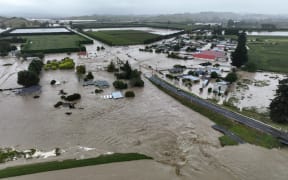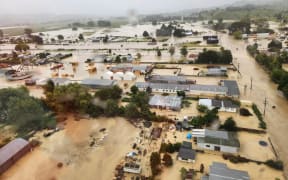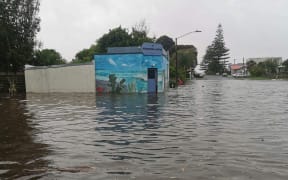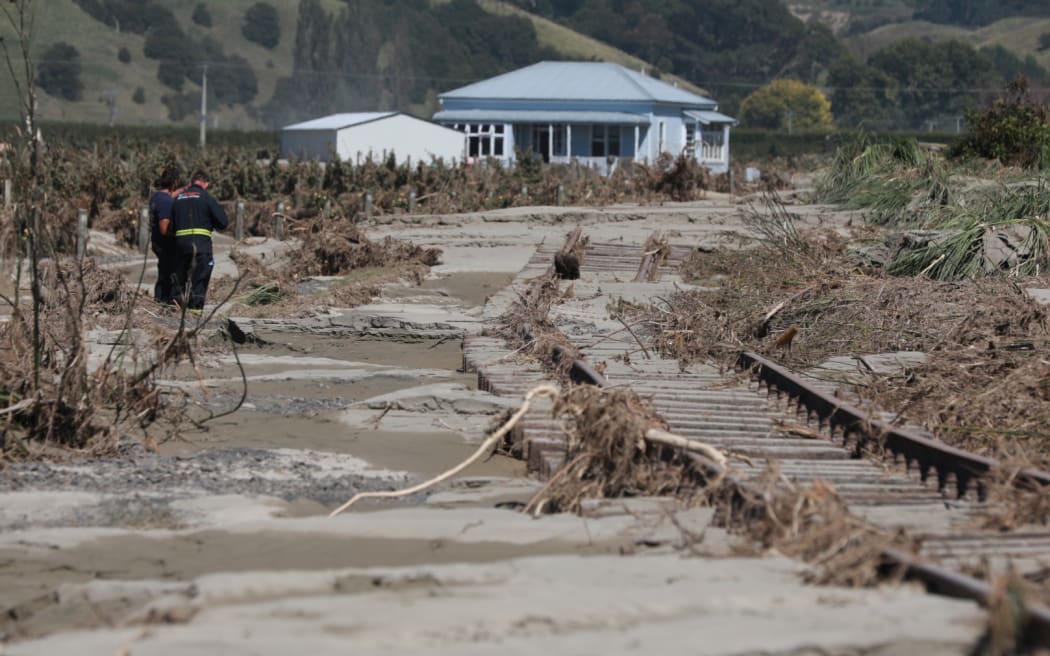
Esk Valley in the Hawke's Bay on 20 February following Cyclone Gabrielle. Photo: RNZ/ Nick Monro
A Waimārama local has told officials Hawke's Bay Civil Defence was set up to fail when Cyclone Gabrielle hit.
At the same meeting yesterday, the Hawke's Bay Civil Defence Emergency Management Group Joint Committee - made up of the region's mayors and regional council chairperson - finally agreed on the scope of the review into the emergency response during the cyclone.
Richard Gaddum had been a volunteer Civil Defence community leader in the coastal town of Waimārama since 2011, when flooding cut road access, power and communications for a week.
He said the wheels started falling off in 2014 when around a dozen community-based Civil Defence groups sitting under Hastings District Council were disestablished, and the remit was moved to more centralised management under Hawke's Bay Regional Council.
"What we have ended up with over the last 10 years is a Civil Defence structure that was bound to fail, and sadly set up to fail."
There was no longer a close relationship between officials and those on the ground running community efforts, Gaddum said.
"The whole culture of Civil Defence changed.
"All the community-based Civil Defence structures were dismantled - such a tragedy."
That meant things like requests for a satellite phone in the isolated community - which he said they were given after the 2011 flood, but was later taken away - had fallen on deaf ears.
He argued Cyclone Gabrielle proved the consequences of changes to the Civil Defence structure.
"To expect a skeleton crew from Civil Defence personnel to cope with such a catastrophic event over the whole of Hawke's Bay region was an impossible task, and proved to be so."
Gaddum said that meant the public lost confidence in Civil Defence's ability to take care of them.
"They deserve, and still do deserve, better."
He warned the meeting that the region was "totally unprepared" for disasters like a tsunami, and said he feared winter - and with it, more rain and potential flooding - would be over before anything changed.
Civil Defence review 'well overdue'
Later in the meeting, the committee agreed to the terms of reference for the review into Hawke's Bay Civil Defence's response to Cyclone Gabrielle.
That meant it would finally get started, but not before a lengthy procurement process to select the independent review panel took place.
The review would begin in August, and be wrapped up by the end of the year.
Central Hawke's Bay mayor Alex Walker said the investigation was "well overdue" and should have happened months ago.

Central Hawke's Bay mayor Alex Walker. Photo: RNZ / Tom Kitchin
"It's absolutely vital to the future of the region that we get down to what happened here, and how we improve this system for the future.
"It is very clear that confidence is lacking, and we need to get back to a place where this group and our leadership can be seen as a trusted source to look after our communities in the future."
Hastings mayor Sandra Hazlehurst agreed.

Hastings mayor Sandra Hazlehurst. Photo: RNZ / Tom Kitchin
"I would like to think that, under the timeframe, if we manage to get through this earlier, to give our community some feedback on this review, then we would do that and not wait for December.
"They need some answers, and I think that we want this review to give them some answers and a way forward."
Mana whenua get a seat at the table
The committee noted the important role iwi, hapū and marae played in the Cyclone Gabrielle response - and later voted for mana whenua to be formally represented on the committee.
Māori representation in Civil Defence groups was likely to become a legal requirement eventually, via the new Emergency Management Bill - but that was delayed getting to Parliament, and was unlikely to pass before the election.
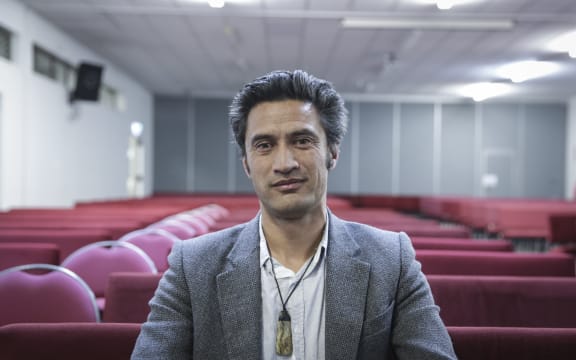
Ngāti Kahungunu chairperson Bayden Barber. Photo: RNZ / Rebekah Parsons-King
Ngāti Kahungunu chairperson Bayden Barber said the community would benefit hugely from a mana whenua perspective, and their experience in dealing with emergencies.
They needed equal contribution and resourcing, he said.
"Let's get this waka in the right space and place with us all on it together, heading in the right direction.
"Anything less than that's gonna be a disservice to our people."
Walker criticised council officers for not having already made the necessary changes to afford mana whenua the respect of being part of the committee - which they had been asked to do in November 2021.

